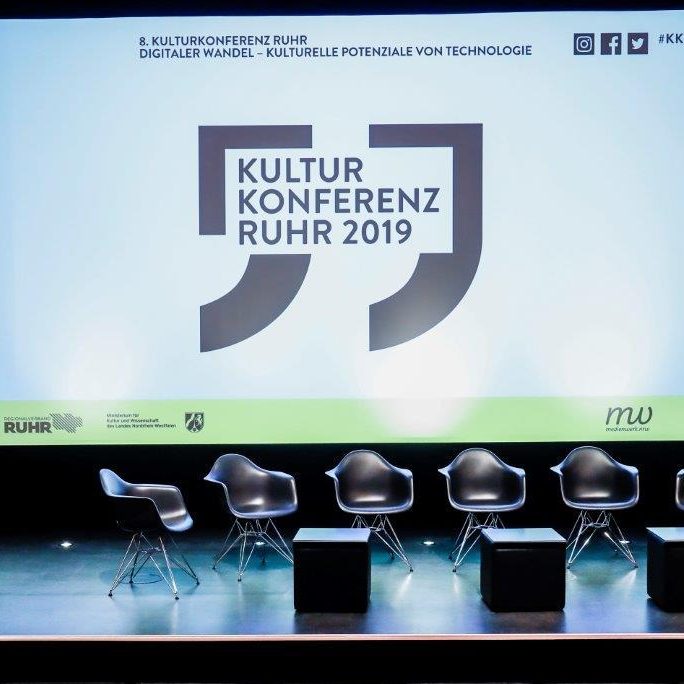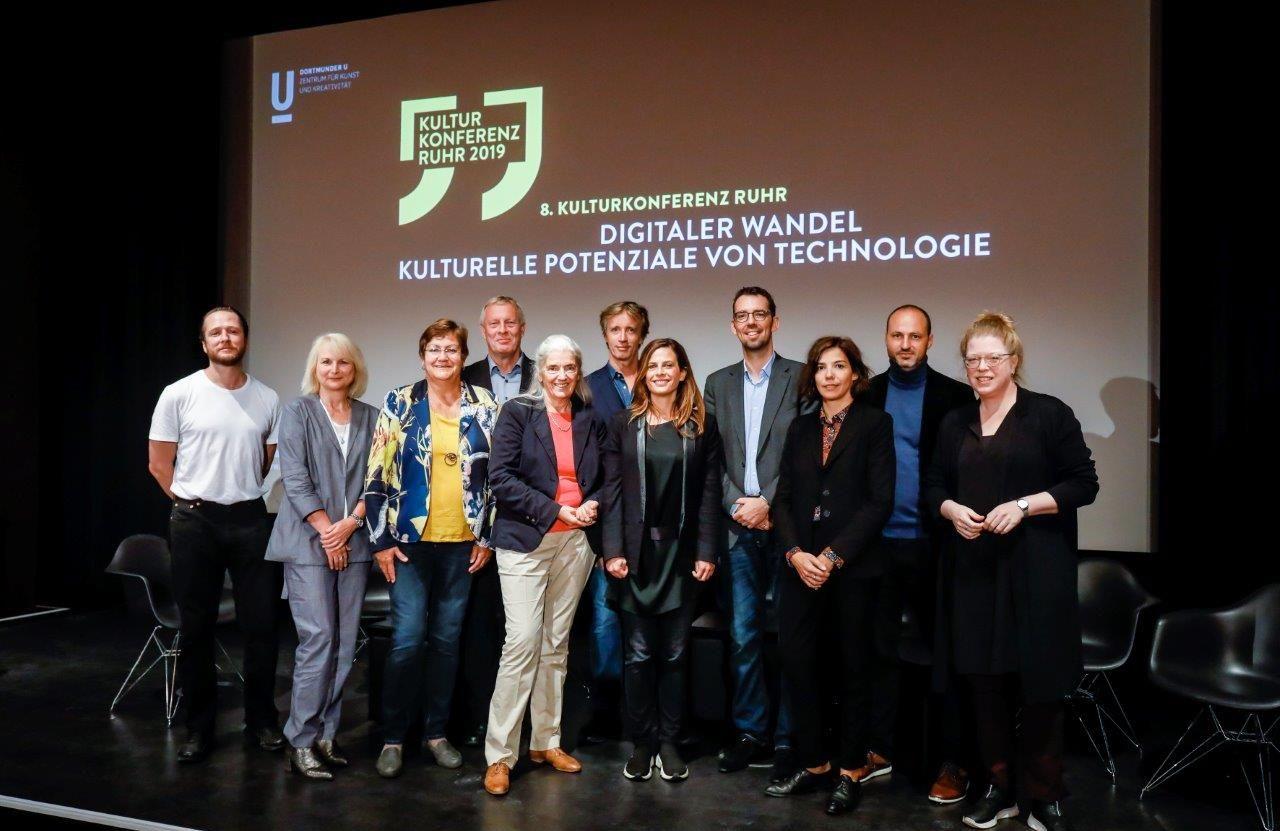KULTURKONFERENZ RUHR 2019 – Cultural potentials of technology
DORTMUNDER U
FRi, 13.09.2019

The Kulturkonferenz Ruhr 2019 was organised by the Regionalverband Ruhr and the Ministry of Culture and Science of the State of North Rhine-Westphalia, in cooperation with medienwerk.nrw. The digital transformation not only poses new challenges for communication and production processes. Cultural institutions and cultural practitioners must also develop strategies, responses and positions on digitalisation. The 8th Kulturkonferenz Ruhr in the Dortmunder U, which was fully booked with 400 participants, offered a top-class forum on the topic on September 13th 2019.
Man and machine: in a mature industrial region like the Ruhr, this relationship has always been a special one and rarely a simple one. The digital transformation is now taking this relationship to a completely new, unprecedented level. In many cases, fiction has long since become fact; nothing seems impossible, every idea technically realisable. Digital technologies are changing our society and our urban structures to an almost incalculable extent – and are thus also influencing the role and self-image of art and culture in socio-political development. On the other hand: technical overload, an oversupply of information, the dominance of a few commercial actors and new global (and often hidden) relations of exploitation.
How does an artist become and remain relevant here? What about ethical values, one’s own rights, responsibility, data sovereignty and existing power relations? Who benefits and who doesn’t? What educational models are needed? What archives? How does digital actually work? And is the longing for the analogue still legitimate? In short: What about the modern relationship between man and machine? And what does the machine have to say about it?
Cultural institutions and cultural practitioners are called upon to develop their own strategies and positioning in a process of change that dissolves temporal and spatial boundaries, that thinks in updates and global dimensions. Digitisation expands our world to include virtual realities, opens up markets, enables new artistic freedom and aesthetics. It makes art and culture ubiquitous, available at any time and generally accessible.
The 8th Kulturkonferenz Ruhr 2019 invited people working in the arts and culture to actively shape the debate on the digital transformation. It wanted to set impulses, make potential visible and strengthen it, explore and promote new alliances between art, culture, science and business. The aim was to initiate a discourse on what role art and culture can play now and in the future in the discussion about technology and society, and what preconditions and cultural policy framework conditions should be created for this.
More info about the Kulturkonferenz Ruhr 2019
The programme of the Kulturkonferenz Ruhr 2019 was conceived by:
- Dr. Inke Arns, director Hartware MedienKunstVerein e.V. (HMKV)
- Alain Bieber, director NRW-Forum Düsseldorf
- Stefan Hilterhaus, director PACT Zollverein
- Stefanie Reichart, Head of Department Kultur Regionalverband Ruhr
- Fabian Saavedra-Lara, director Office medienwerk.nrw



